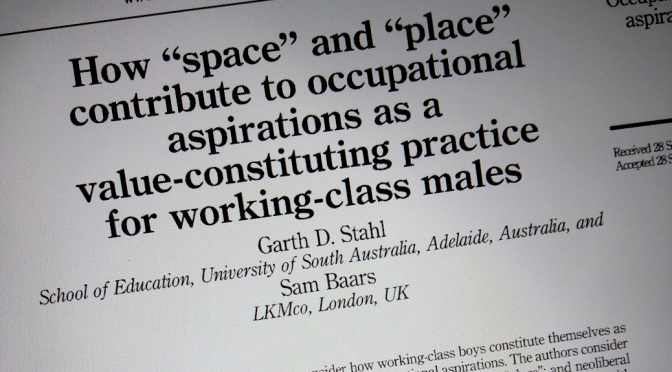The March 2016 special issue of Education + Training, focusing on gendered spaces and subjectivities, carried a paper I co-authored with Garth Stahl. In the paper we look at how “space” and “place” contribute to occupational aspirations as a value-constituting practice for working-class males, drawing on fieldwork I conducted in South Manchester for my PhD.
The purpose of the paper is to consider how working-class boys constitute themselves as subjects of “value” through a close examination of their occupational aspirations. Garth and I consider two significant influences on the aspirations of these young men: “space” and “place”; and neoliberal discourses which privilege a particular concept of individualized personhood. Contending with neoliberal conceptions of personhood and aspiration (that are primarily competitive, economic, and status based), we argue that working-class and working-poor young men either align themselves with the “entrepreneurial” or “aspirational” self or face the label of “low aspirations”.
Employing space and place as conceptual lenses allows for a nuanced understanding of how aspirations are formed (and reformed) according to immediate locale. To explore the identity negotiations surrounding the occupational aspirations of working-class males, we draw on two qualitative research studies in deprived neighbourhoods located in South Manchester and South London.
Based on the evidence as well as the wider research concerning working-class males and occupational aspirations, we argue that aspirations are formed in a contested space between traditional, localized, classed identities and a broader neoliberal conception of the “aspirational” rootless self.
Our paper problematizes the literature generated by government bodies and educational institutions regarding working-class youth as having a “poverty of aspirations”. Additionally, value lies in the cross-reference of two specific geographic areas using the conceptual lens of space and place.
